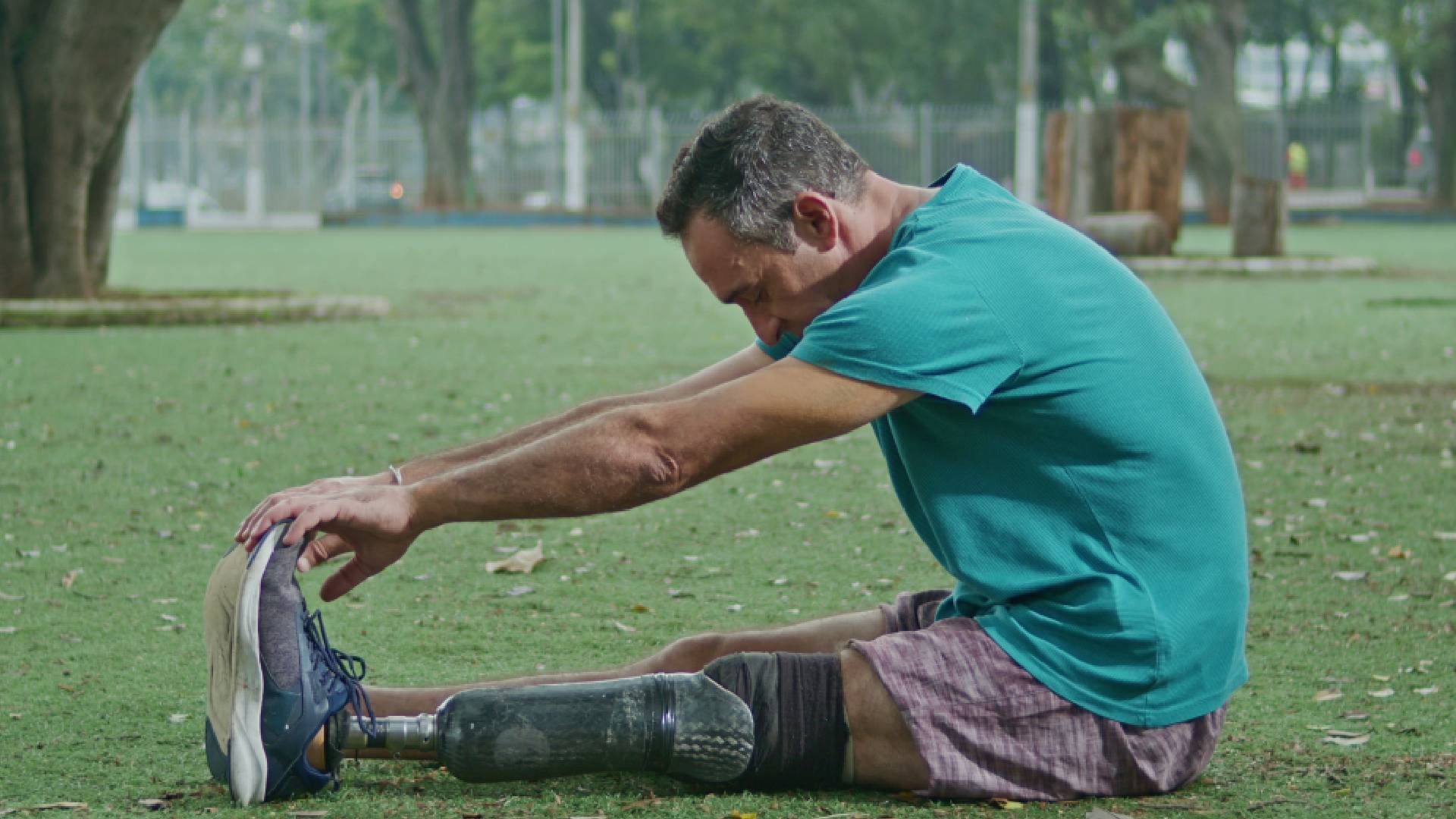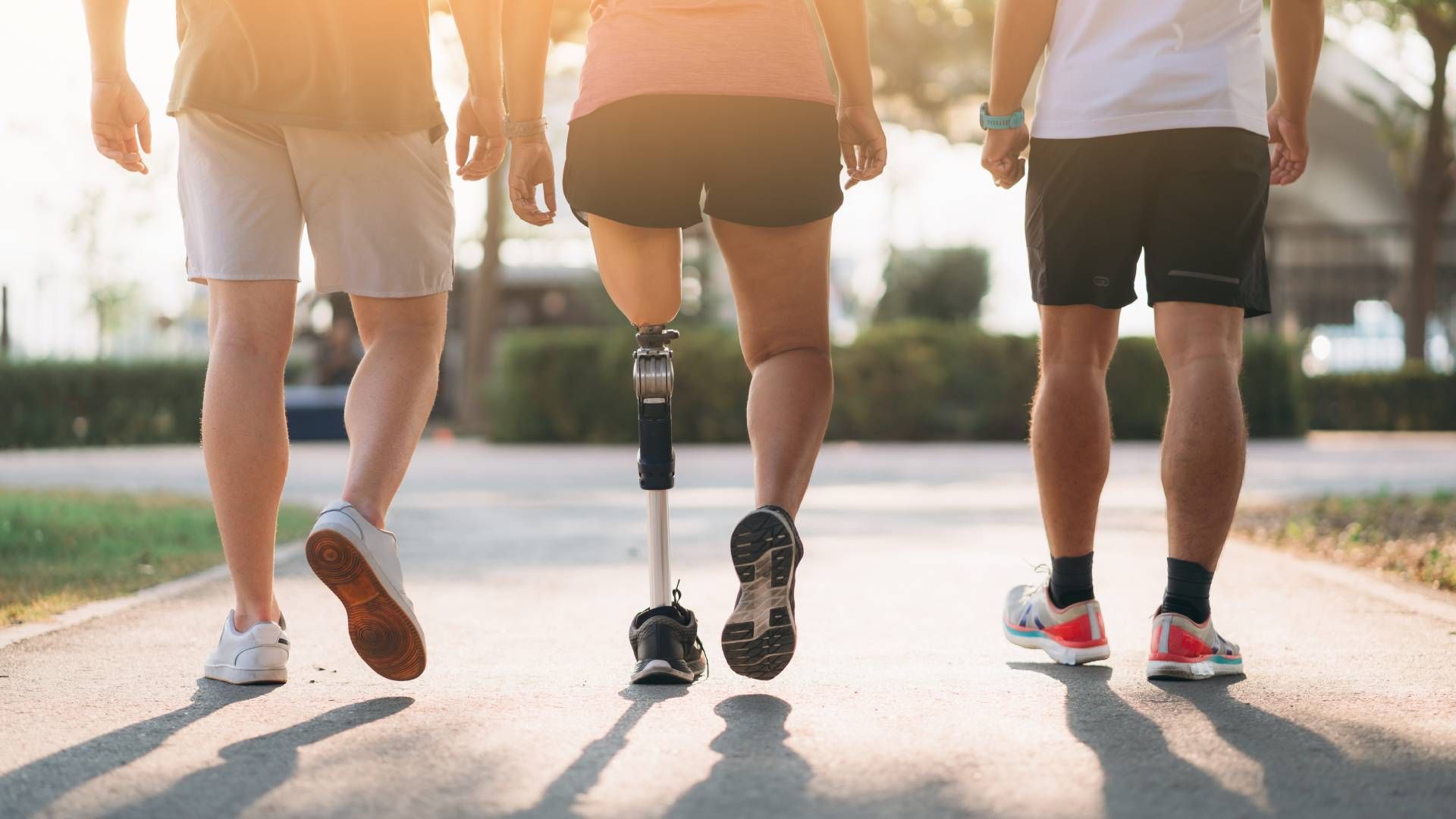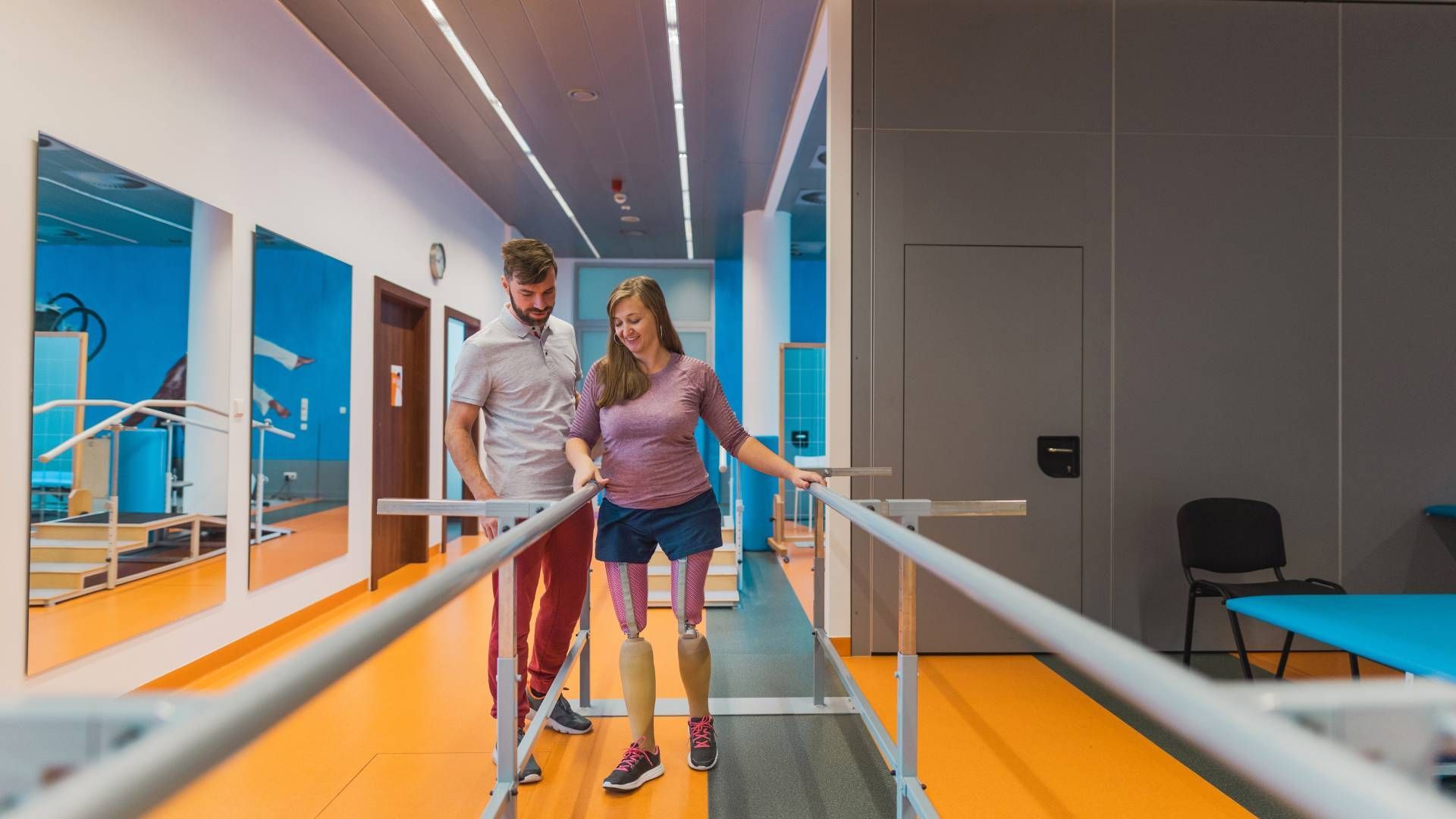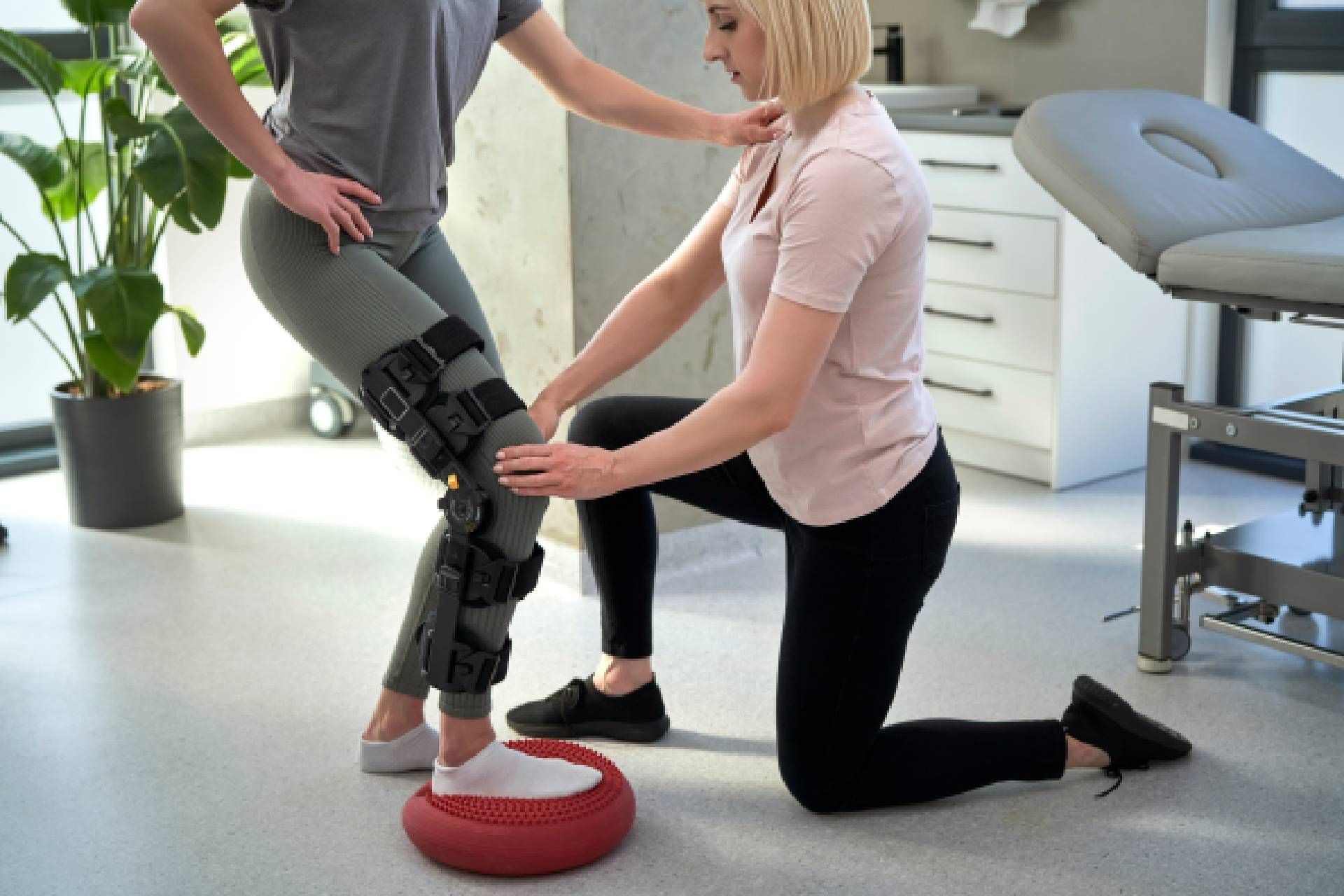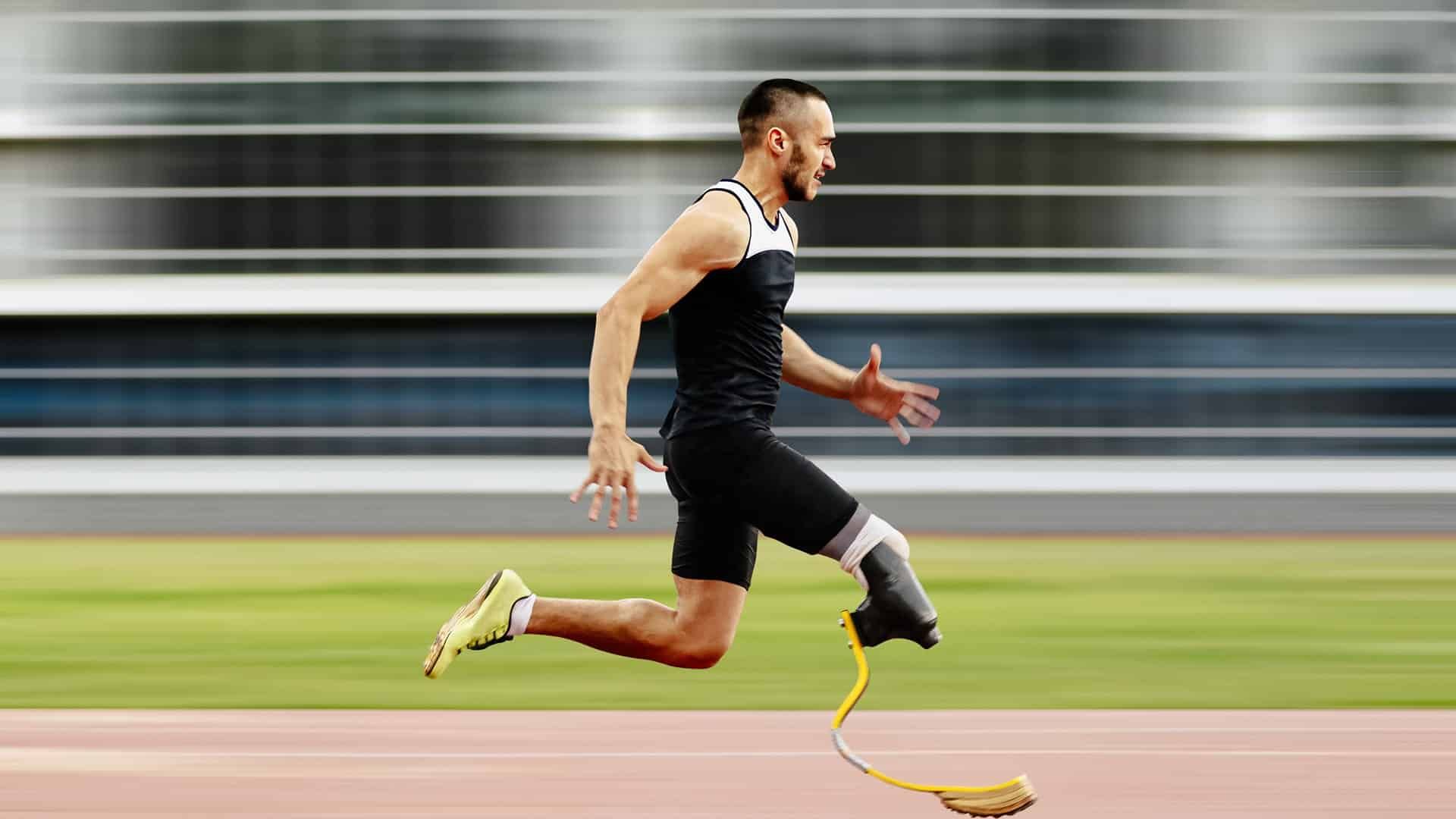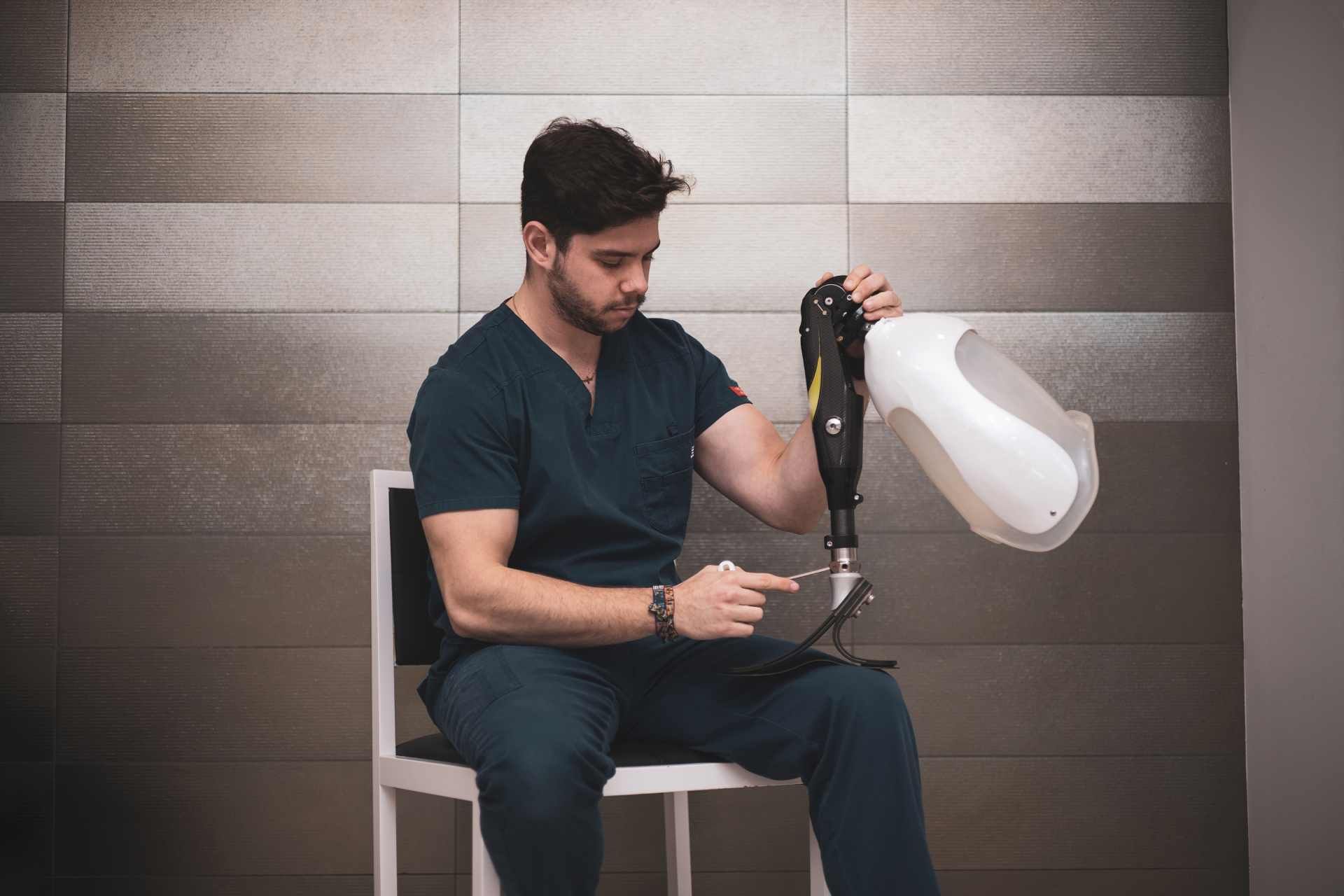No matter how long you’ve had your prosthetic device, whether you are brand new to the prosthetic journey or well on your way through the process, challenges can always arise. They may be significant and result from a major change in your body or activity level, or they may be minor and come from the normal wear and tear of a prosthetic device.

Problems with prosthetic devices can result in significant balance and mobility issues, skin irritation, and/or pain. Dealing with common prosthetic problems like these doesn’t have to be daunting or overwhelming! By arming yourself with knowledge and working closely with your prosthetic care team, you can address and overcome these issues with confidence.
1. Balance Issues
Poor balance caused by a poorly fitting prosthetic device may feel different to each amputee: it may feel like an unnatural rotation in your residual limb when moving; it may feel like you’re walking on the edges of your foot instead of the ball and heel; it may result in an abnormal gait pattern which can reduce your sense of stability; or it may present as an increased fear of falling that plagues your mind. All these indicators of impaired balance need to be addressed with your prosthetist care team as soon as they occur in order to minimize negative long-term effects. Dealing with common prosthetic problems involving balance usually requires an adjustment to your prosthetic device to correct the issue. Once the necessary adjustments are made, it can also be beneficial to join an Amputee Walking School during which you can learn to use your prosthetic device to increase your proficiency, balance, and confidence.
2. Skin Irritation
Itchiness, redness, sores, or rashes are all common symptoms of skin-related issues which may be caused by your prosthetic device. Poor fit along with mechanical friction between your residual limb and your prosthetic device are common causes of skin irritation. Quite often, these causes can be remedied easily with an adjustment to your prosthetic device or by adjusting sock usage or soft tissue stabilizing elements. The most important thing you can do to prevent severe skin problems is to inspect your skin at least daily before putting on and after removing your prosthetic device. If you notice any areas of concern (redness, blisters, sores, etc.), notify your prosthetist right away so that he or she can make the necessary adjustments to improve fit and reduce skin irritation.
3. Pain
When dealing with common prosthetic problems, pain is often a symptom that an adjustment needs to be made. Common areas of pain reported by amputees include muscles, joints, or bones of the sound and/or residual limb, back pain, and phantom limb pain or sensations. Pain is most common when the amputee begins wearing a prosthetic device for the first time; however, it can occur at any time throughout the prosthetic journey, especially as body shape, strength, range of motion and activity levels change over time. While some pain can be normal when first getting a new prosthesis, sustained pain over a longer period is not. Talk with your care team about painful symptoms you experience to get individualized help resolving the issue. This may include adjustments to the prosthetic device itself or getting additional help with learning to use your prosthesis properly. Amputee Walking Schools are available to help new and experienced prosthetic users increase their strength and coordination when using their device. After all, the correct use of a prosthetic device is key to a pain-free experience.
Contact Us
If you are dealing with common prosthetic problems including pain, skin irritation, or balance issues, contact the team at Kenney Orthopedics for help. Talk with a professional prosthetist about your device, get adjustments or advice from your healthcare team, and participate in an Amputee Walking School held in multiple locations throughout KY, IN and NC. Find Kenney Orthopedics locations near Lexington, KY; Louisville, KY; Indianapolis, IN; and Charlotte, NC. Request a consultation today.


